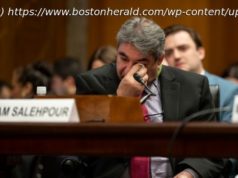The Facebook chief executive had initially resisted meeting with European authorities, who have emerged as the world’s most assertive watchdog of the technology industry.
European lawmakers barraged the Facebook chief executive, Mark Zuckerberg, with a litany of questions on Tuesday over his company’s vast power, with one even raising the prospect of breaking up the social media giant.
Accompanied by an entourage of aides, Mr. Zuckerberg’s visit to the European Union’s typically sleepy Parliament amounted to an olive branch of sorts by the social media titan. The Facebook chief executive, whose company has been fighting an array of scandals over its handling of user data, had initially resisted meeting with the European authorities, who have emerged as the world’s most assertive watchdog of the technology industry.
But it was also a limited concession. While Mr. Zuckerberg’s testimony to Congress last month was a theatrical display, with hours of questioning by powerful lawmakers who could pass new legislation to crack down on Facebook, Europe’s Parliament is markedly weaker. It does not have the power to regulate Facebook, and its members rarely make news beyond their own national borders.
Still, Mr. Zuckerberg kept to the conciliatory script he used in Washington, reading out a statement in which he apologized for Facebook’s role in spreading of misinformation, foreign interference in elections, and the mishandling of customer data.
He then faced pressure from lawmakers, but the format of the questioning caused criticism. Members of Parliament spoke one after another, asking several questions at once, going more than 20 minutes before allowing Mr. Zuckerberg to respond.
At one point, Manfred Weber, a German member of the legislature, asked whether it was time to consider breaking up Facebook because the company had “too much power.”
Security around the Parliament building was extremely tight, at a heightened level typically reserved for national leaders, rather than company chief executives. Mr. Zuckerberg was dressed in a traditional dark suit similar to what he has worn during public meetings with government officials in the past, rather than the casual attire he is famous for.
The meeting — Facebook officials took pains to point out that Mr. Zuckerberg was not testifying — was the first time that European officials were able to question Mr. Zuckerberg since The New York Times and other news outlets revealed in March that the British political consulting firm Cambridge Analytica had improperly gathered data on millions of Facebook users without their knowledge.
[ Read more about Mr. Zuckerberg’s testimony to the Senate and the House .]
Since then, Mr. Zuckerberg has embarked on a global apology tour, including posting a public mea culpa on his Facebook page. The company has started an advertising blitz in a bid to repair its image and introduced several new privacy settings to the social media platform.
To some European officials, however, those efforts have rung hollow.
“To say sorry is not enough,” Giovanni Buttarelli, the European Union’s data protection supervisor, said in an interview.
The Cambridge Analytica scandal was the result of Facebook’s lax privacy policies, Mr. Buttarelli said, adding that stricter oversight was needed globally because “it’s time for a different approach.”
Mr. Zuckerberg’s appearance is a timely one, coming ahead of the region’s introduction of strict new data privacy law, called the General Data Protection Regulation. The rules, among the toughest in the world, empower regulators to fine companies up to 4 percent of global revenue for privacy violations — equivalent to $1.6 billion for Facebook.
They also limit what personal data companies can collect without first acquiring consent from users, and open Facebook and other organizations to government investigations as well as consumer lawsuits.
[ Read more about what the new European privacy rules mean for you.]
The new protections are the latest in a series of crackdowns in Europe against technology companies in recent years. The European authorities have hit American tech companies for tax avoidance (Apple and Amazon); antitrust violations (Google, Microsoft and Qualcomm); and data-sharing violations (Facebook).
Silicon Valley giants complain that they are being unfairly targeted, as successful American businesses — a charge officials in Europe deny.
Mr. Zuckerberg’s meeting was the result of weeks of negotiations between Facebook and European officials. It was initially scheduled to be held behind closed doors, but after an outcry in Brussels, Mr. Zuckerberg agreed to make the questioning public by streaming it online. His appearance brought a rare buzz to the European Parliament. The body’s live stream for Mr. Zuckerberg’s appearance temporarily crashed, probably because of the high level of interest in the meeting.
“People are thrilled to put Zuckerberg on the grill,” said Karl Pincherelle, an aide to a French member of the European Parliament.
Though it does not have any direct powers over Facebook, the body plays a role in drafting laws. Mr. Zuckerberg met with a small group of lawmakers, including the heads of various political blocs, rather than the Parliament’s full chamber. Separately, the body’s civil liberties committee is looking into Facebook’s practices in Europe, but did not get the chance to question the Facebook chief executive.






